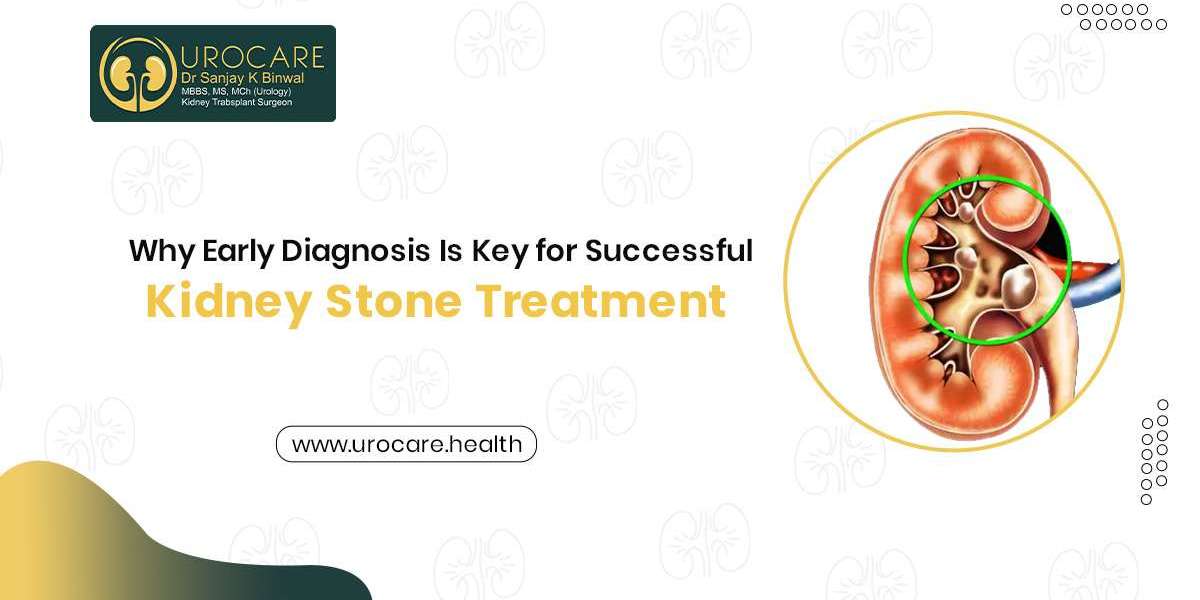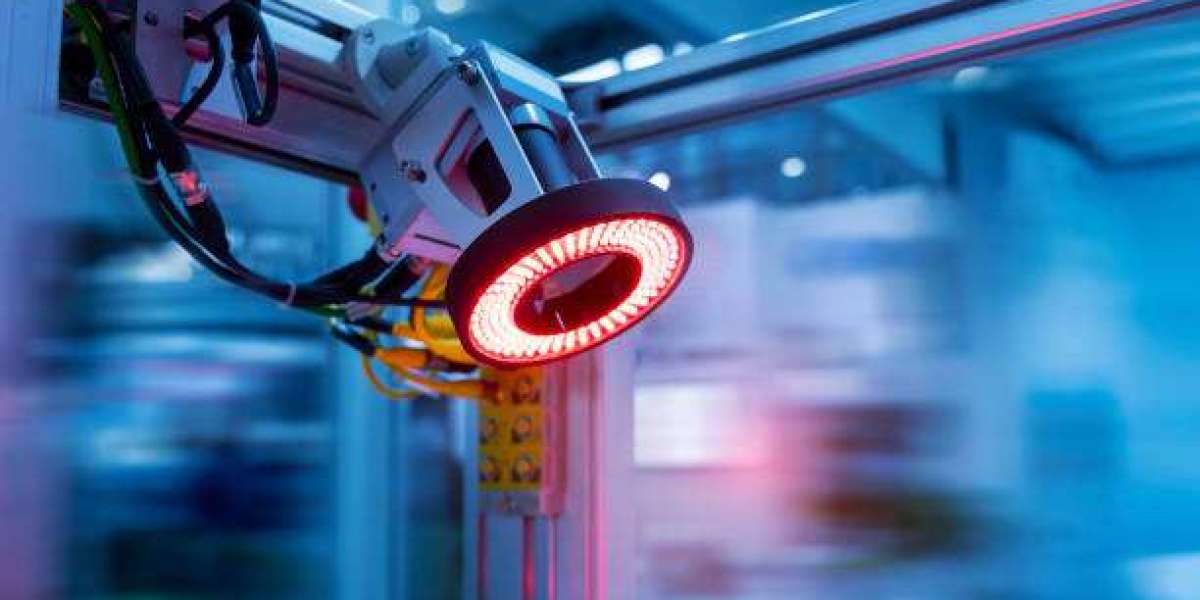Kidney stones are a common yet potentially serious urological issue affecting millions worldwide. These small, hard deposits of minerals can cause intense pain and serious complications if not treated promptly. Fortunately, advancements in diagnostics and urological care have made early detection and treatment more effective than ever. In cities like Jaipur, where access to advanced medical facilities is steadily improving, Kidney Stone Treatment in Jaipur is not only accessible but also highly effective—if diagnosed early.
This blog explores why early diagnosis is critical in kidney stone management, what patients can expect during evaluation, and how expert care from a qualified urologist like Dr. Sanjay K Binwal can make a difference in treatment outcomes.
Understanding Kidney Stones: What Are They?
Kidney stones form when minerals like calcium, oxalate, and uric acid crystallize in the kidneys. These stones may vary in size—from tiny grains to larger, more obstructive ones. If a stone becomes lodged in the urinary tract, it can block urine flow, leading to severe pain, infection, or even kidney damage.
While some small stones may pass on their own, larger or recurring stones often require medical intervention.
The Power of Early Detection
When it comes to treating kidney stones, time is of the essence. Early diagnosis provides several key advantages:
1. Prevents Complications
Without early intervention, kidney stones can cause infections, urinary blockages, and even permanent kidney damage. Detecting stones before they grow large helps prevent these outcomes.
2. Less Invasive Treatments
Small stones caught early can often be managed with medication, hydration, or simple outpatient procedures like extracorporeal shock wave lithotripsy (ESWL). Larger stones, in contrast, may require more invasive surgeries such as PCNL (Percutaneous Nephrolithotomy) or ureteroscopy.
3. Faster Recovery
The earlier the treatment, the quicker the recovery. Early-stage stones cause less trauma to the urinary tract and reduce the need for prolonged hospital stays or complex surgical interventions.
4. Cost-Effective Care
Avoiding emergency room visits, intensive surgeries, and hospital stays through early intervention reduces overall healthcare costs significantly.
Warning Signs You Shouldn’t Ignore
Recognizing early symptoms is key to prompt diagnosis. If you notice any of the following signs, it’s time to consult a urologist:
Sharp pain in the back, abdomen, or groin
Blood in urine
Nausea or vomiting
Frequent or painful urination
Cloudy or foul-smelling urine
Fever and chills (in case of infection)
Diagnostic Tools Used for Early Detection
Advanced imaging and lab tests help urologists detect kidney stones early and accurately:
Ultrasound: Ideal for detecting medium-to-large stones and assessing kidney swelling.
X-Ray (KUB): Useful for detecting certain types of stones (e.g., calcium-based).
CT Scan: Highly accurate and can detect even tiny stones.
Urine Analysis: Identifies crystals, blood, and signs of infection.
Blood Tests: Evaluate kidney function and mineral levels.
The Role of the Urologist in Diagnosis and Management
A Urologist specializes in disorders of the urinary tract and is trained to diagnose, treat, and prevent kidney stones efficiently. After reviewing imaging and lab results, the urologist will assess:
The size, number, and location of the stones
Whether the stones are causing a blockage or infection
The type of stone (calcium, uric acid, struvite, etc.)
Any underlying conditions (like metabolic imbalances) that caused the stones
Based on this, a personalized treatment plan is recommended, ranging from medication and hydration to minimally invasive procedures.
Dr. Sanjay K Binwal: A Trusted Name in Urology Care
If you're experiencing symptoms of kidney stones, consulting an experienced specialist like Dr. Sanjay K Binwal can make all the difference. Practicing at PinkCity Super Speciality Clinic, Dr. Binwal is widely regarded for his expertise in diagnosing and treating kidney stones using modern, patient-friendly techniques.
Dr. Binwal emphasizes early diagnosis as the cornerstone of successful treatment. His approach combines advanced diagnostics with holistic management—focusing not only on removing stones but also preventing their recurrence through dietary guidance, hydration advice, and regular follow-up.
Whether you’re dealing with your first stone or struggling with recurrent issues, Dr. Binwal's tailored care can help you achieve long-term relief and kidney health.
What Happens If You Delay Diagnosis?
Delaying diagnosis or self-medicating without expert consultation can result in:
Severe Obstruction: Blocked urine flow can damage kidneys
Infections: Stones can harbor bacteria, leading to pyelonephritis
Kidney Failure: In rare but severe cases, untreated stones can lead to irreversible kidney damage
Higher Costs: Emergency treatments and surgeries are far more expensive than early, planned interventions
Tips to Prevent Kidney Stones
Early diagnosis is important, but prevention is even better. Here’s how you can reduce your risk of stone formation:
Stay Well Hydrated: Drink at least 2-3 liters of water daily
Limit Salt & Animal Protein: High sodium and red meat can promote stone formation
Avoid Oxalate-Rich Foods: Such as spinach, beets, and nuts (consult a dietitian)
Maintain a Healthy Weight: Obesity increases stone risk
Regular Check-Ups: Especially if you have a family history or have had stones before
Final Thoughts
Kidney stones are painful but preventable and treatable. Early diagnosis can significantly improve outcomes, reduce treatment complexity, and protect long-term kidney function. It also helps in customizing preventive strategies to avoid recurrence.
By consulting a specialized urologist early on, patients can access safer, faster, and more effective care. If you're experiencing symptoms or have a history of kidney stones, don’t wait—get evaluated by a trusted specialist.
In Jaipur, Kidney Stone Treatment is now more advanced than ever, and experts like Dr. Sanjay K Binwal are leading the way with personalized, patient-first care. Don’t ignore the signs—early diagnosis is the first and most important step toward healthy kidneys and a pain-free life.







